German cars are known for their engineering, performance, and luxury features. If you’re looking for a unique German car for less than $5000, there are several options available.
Some of the best options include the Honda Civic (EG/EH/EJ), Toyota Corolla (E80), and Acura Integra. These cars are affordable and can be great projects for car enthusiasts.
Additionally, you can find high-end ’90s cars like the Mercedes-Benz S500, BMW M5, and Land Rover Discovery for around $10,000 or less.
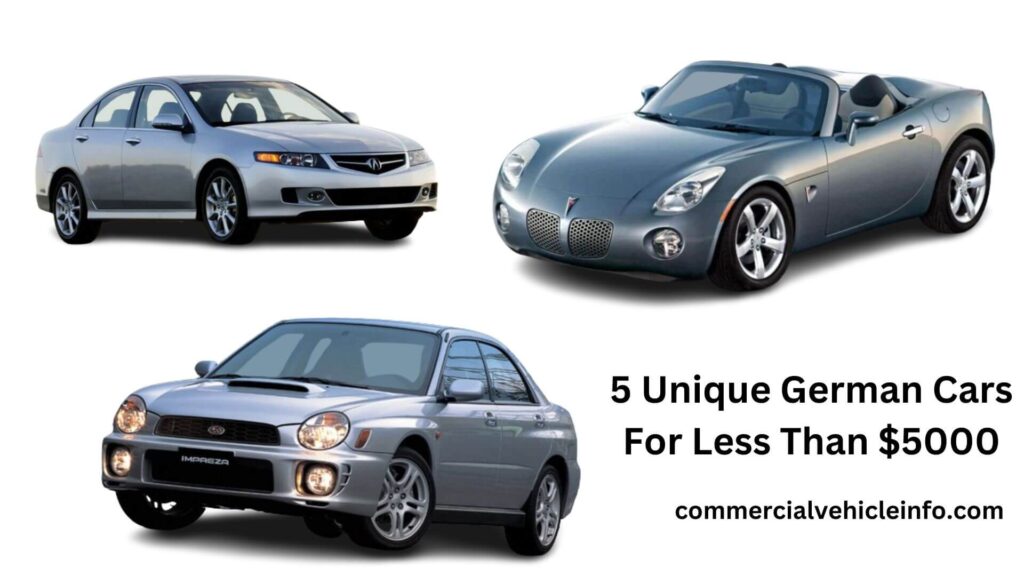
BMW Z3
The BMW Z3 is a two-seater roadster and coupé that was produced by German automaker BMW from 1995 to 2002.
It was the first mass-produced car in the BMW Z Series lineup, and it was based on the platform of the E36 3 Series.
The Z3 was available in a variety of engine options, including four-cylinder and six-cylinder units. The most powerful version was the Z3 M Roadster, which was powered by a 3.2-liter straight-six engine that produced 325 horsepower.
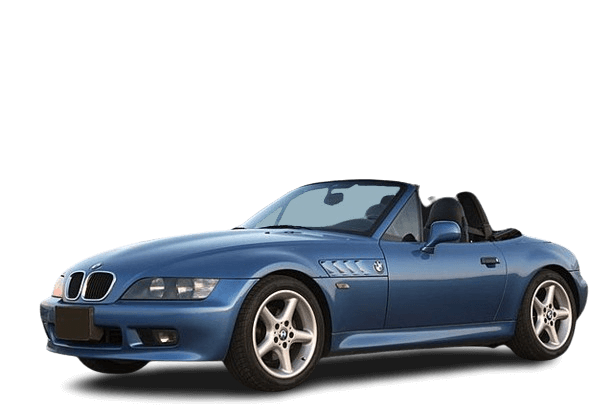
Here are some of the key features of the BMW Z3:
- Two-seater roadster or coupé body style
- Rear-wheel drive
- Four-cylinder or six-cylinder engine options
- Manual or automatic transmission
- Convertible top on roadster models
- Optional hardtop on coupé models
- Anti-lock brakes and traction control
- Airbags for driver and passenger
- Power windows and locks
- Leather upholstery
- Alloy wheels
The BMW Z3 was a popular car, and it is still sought after by collectors today. It is a stylish and fun-to-drive car that offers a great balance of performance and comfort.
Here are some additional details about the BMW Z3:
- Years produced: 1995-2002
- Body styles: Roadster, coupé
- Engines: 1.8L I4, 1.9L I4, 2.5L I6, 2.8L I6, 3.2L I6
- Transmission: 5-speed manual, 4-speed automatic
- Power: 115-325 hp
- Fuel economy: 19-22 mpg city, 25-29 mpg highway
- Starting price: $39,900 (1995)
If you are considering buying a BMW Z3, be sure to do your research and find a car that is in good condition. You should also be prepared to pay a premium for a well-maintained example.
Volkswagen Rabbit MK5
The Volkswagen Rabbit MK5, also known as the Golf Mk5 in some markets, was a compact hatchback car produced by Volkswagen from 2003 to 2009.
It was the fifth generation of the Golf, and it was available in three- and five-door hatchback configurations, as well as a five-door station wagon (2007-2009).
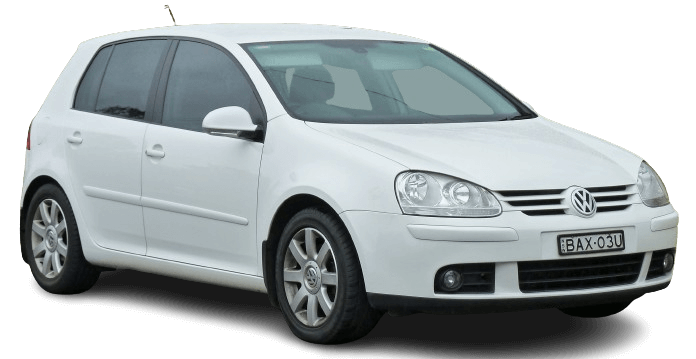
Here are some of the key features of the Volkswagen Rabbit MK5:
- Engine: 2.5L five-cylinder gasoline engine producing 150 hp (2006-2007) or 170 hp (2008-2009)
- Transmission: 5-speed manual or 6-speed automatic
- Fuel economy: 22 mpg city, 31 mpg highway (manual transmission)
- Safety features: Anti-lock brakes, traction control, airbags for driver and passenger, side curtain airbags
- Features: Power windows and locks, air conditioning, CD player, optional sunroof
The Volkswagen Rabbit MK5 was a popular car, and it is still considered a reliable and fun-to-drive option in the used car market. Here are some additional details and insights:
Design:
- The Rabbit MK5 featured a more rounded and modern design compared to its predecessor, the MK4.
- The interior was also more spacious and comfortable, with higher-quality materials.
Performance:
- The 2.5L five-cylinder engine provided peppy acceleration and a smooth ride.
- The handling was sharp and responsive, making the Rabbit MK5 a fun car to drive on twisty roads.
Reliability:
- The Rabbit MK5 has a good reputation for reliability, with few reported problems.
- However, some owners have reported issues with the transmission and electrical system.
Value:
- Rabbit MK5s can be found for a relatively affordable price in the used car market.
- However, prices can vary depending on the condition, mileage, and trim level.
Overall, the Volkswagen Rabbit MK5 is a great choice for a used car shopper looking for a fun, reliable, and stylish hatchback.
Mercedes C-Class (W203 Chassis)
The Mercedes-Benz C-Class (W203) was the second generation of the C-Class, produced from 1999 to 2010.
It marked a significant step forward in design, technology, and performance compared to its predecessor.
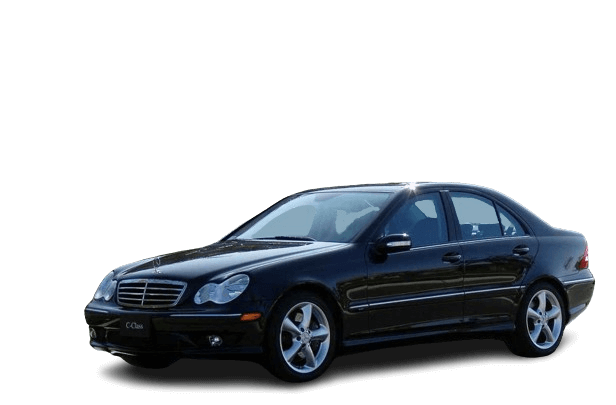
Production
- Years: 1999-2010
- Body styles: Sedan, station wagon (S203), coupe (SportCoupe; later named CLC-Class)
- Engine options: Varied across years and regions, including 4-cylinder, V6, and V8 options in petrol and diesel variants.
- Transmission options: Manual, automatic, and even an automated manual
Design
- More modern and rounded design compared to the W202
- Interior offered improved space, comfort, and materials
- Available in Classic, Elegance, and Avantgarde trim levels
Performance
- Handling significantly improved, offering a more dynamic and sporty experience
- Engines provided a range of power levels, from efficient 4-cylinders to powerful V8s in AMG variants
- 4MATIC all-wheel-drive option available for added traction
Features
- Standard features included power windows, locks, air conditioning, and a CD player
- Optional features include sunroof, navigation, heated seats, and a premium sound system
- Safety features included anti-lock brakes, traction control, airbags, and stability control
Reliability
- Generally considered a reliable car, but some common issues include electrical problems, suspension issues, and transmission problems in certain models
- Regular maintenance and servicing are crucial for maintaining reliability
Value
- Prices vary depending on model year, mileage, condition, and trim level
- Generally more expensive than comparable Japanese cars but offers a premium brand experience and potential for higher resale value
Porsche 944
The Porsche 944, produced from 1982 to 1991, was a front-engine, rear-wheel-drive sports car that carved its niche in Porsche’s lineup.
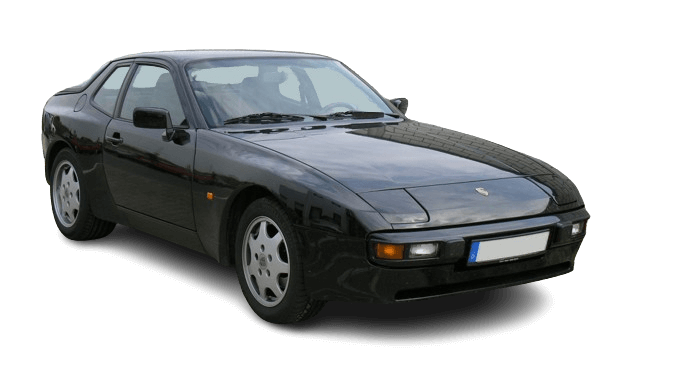
Body & Design:
- Sleek and sporty coupe or cabriolet body styles.
- More muscular and distinct compared to the 924, with wider fenders, a front spoiler, and pop-up headlights (except for later models).
- Available in various trim levels offering cosmetic and performance upgrades.
Engine & Performance:
- Primarily powered by naturally aspirated or turbocharged 2.5L 4-cylinder engines, ranging from 150 hp to 250 hp in top-spec Turbo S models.
- Smooth and refined delivery, known for excellent balance and handling.
- Manual and automatic transmissions are available.
- 0-60 mph times ranged from 6.5 to 5.7 seconds depending on the model.
Interior & Features:
- 2+2 seating configuration with decent cargo space.
- Ergonomically designed cockpit with driver-focused layout.
- Standard features included power windows, locks, and sunroof.
- Optional features like air conditioning, an upgraded audio system, and leather seats were available.
Variations & Special Editions:
- 944: Base model with various engine options and trim levels.
- 944 S: Higher-performance version with a 16-valve, 190 hp engine.
- 944 Turbo: Turbocharged version offering 220-250 hp, reaching top speeds of over 160 mph.
- 944 S2: 1989 upgrade with a 3.0L engine producing 211 hp.
- 944 Turbo Cup: Race-focused variant with lightweight construction and performance enhancements.
- 944 Anniversary Edition: Limited-edition model celebrating production milestones.
Production & Legacy:
- Over 163,000 units were produced, making it Porsche’s most successful sports car at the time.
- Praised for its blend of performance, comfort, and affordability compared to other Porsches.
- Considered a reliable and engaging driver’s car, maintaining a loyal following among enthusiasts.
Audi Coupe Quattro
The Audi Coupe Quattro, also known as the Ur-Quattro, was a high-performance coupe produced by Audi from 1980 to 1991.
It was the first production car to use all-wheel drive, a technology that would later become synonymous with the Audi brand.
The Coupe Quattro was a groundbreaking car, and it helped to establish Audi as a leader in performance and innovation.
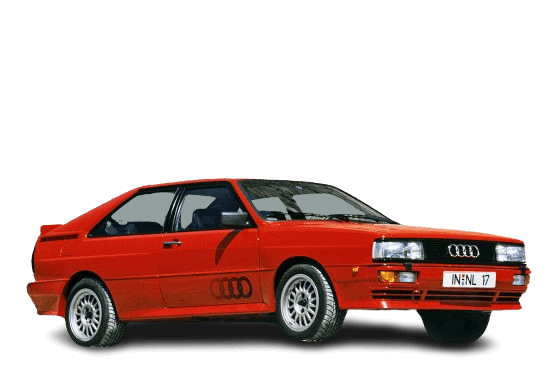
- Production: 1980-1991
- Body style: 2-door coupe
- Layout: Front-engine, all-wheel drive
- Engine: 2.1L turbocharged inline-five I5, producing 200 hp (147 kW) and 210 lb-ft (285 N⋅m) of torque
- Transmission: 5-speed manual
- Acceleration: 0-60 mph in 7.1 seconds
- Top speed: 136 mph (219 km/h)
- Fuel economy: 17 mpg city, 24 mpg highway
- Price: $25,000 (1980)
The Audi Coupe Quattro was a success, zarówno komercyjny, jak i krytyczny. Wygrał wiele rajdów samochodowych, w tym Rajd Monte Carlo w 1982 roku.
Swoim sukcesem pomógł spopularyzować napęd na wszystkie koła i uczynił z Audi markę znaną z osiągów i innowacji.
Some of the key features of the Audi Coupe Quattro include:
- All-wheel drive: The Quattro all-wheel drive system was a revolution in automotive technology. It gave the Coupe Quattro superior traction and handling in all weather conditions.
- Turbocharged engine: The 2.1L turbocharged inline-five engine was powerful and efficient, giving the Coupe Quattro impressive performance.
- Sleek and stylish design: The Coupe Quattro was a beautiful car with a timeless design.
- Safety features: The Coupe Quattro was one of the safest cars of its time, with features such as anti-lock brakes and a reinforced passenger compartment.
The Audi Coupe Quattro is a true classic car. It was a groundbreaking car that helped to shape the automotive industry.
If you are looking for a performance car with a rich history, the Audi Coupe Quattro is a great option.